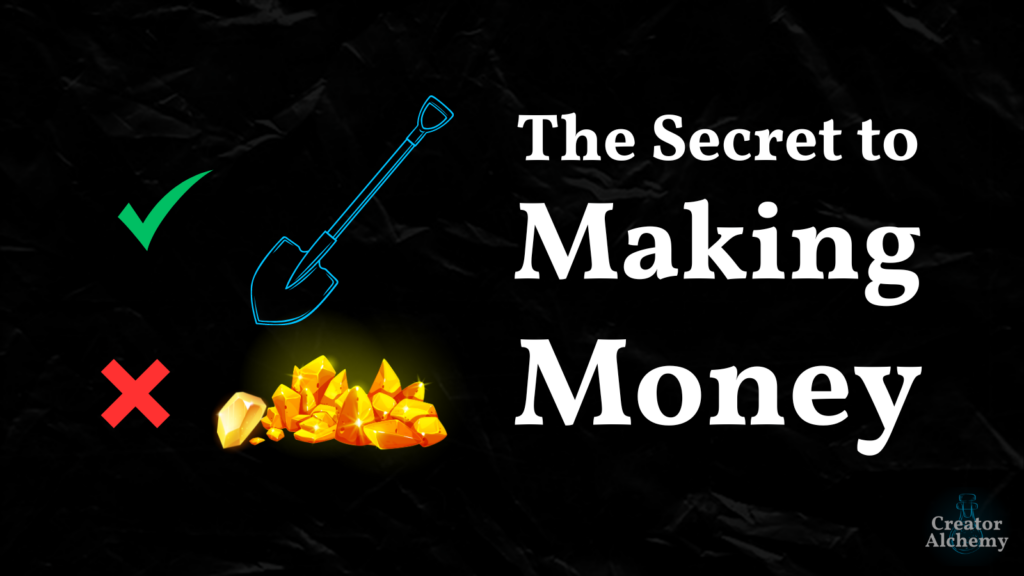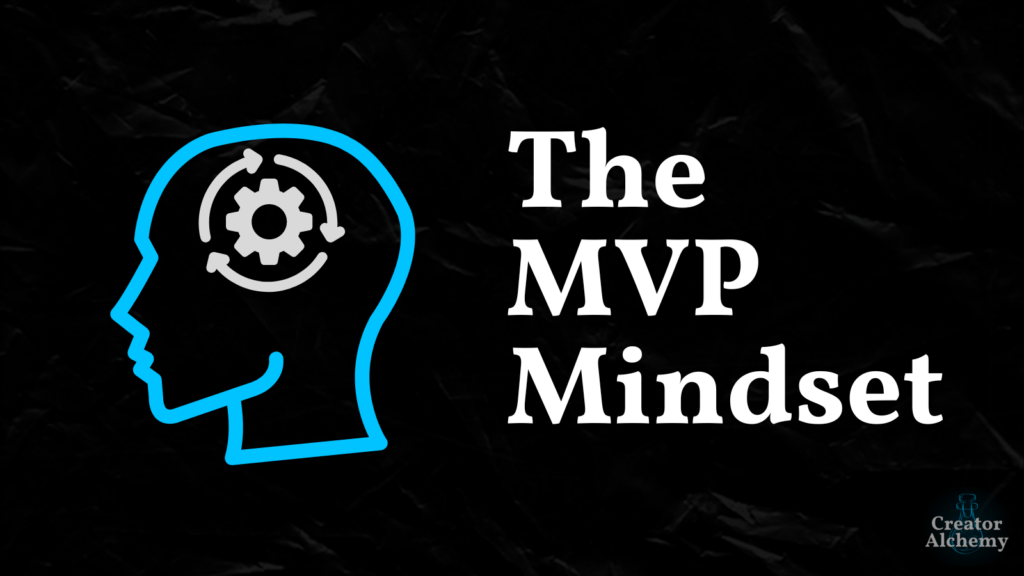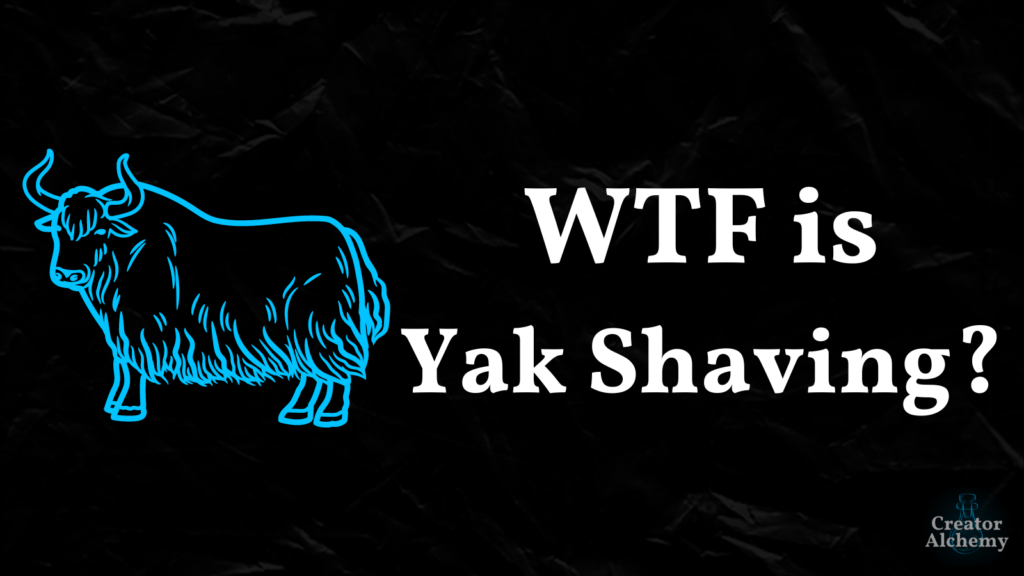It’s easy to think success comes down to unfair advantages like:
- wealth
- powerful networks
- genius-level intelligence
So when you don’t have these, success feels out of reach.
But what if you could make success inevitable without already having these unfair advantages?
The obvious solution (and the one most people talk about) is to learn more business and audience growth tactics—copywriting, monetization strategies, offer creation, repurposing content, etc. These are great and definitely contribute to success, but they don’t make success inevitable.
The non-obvious route (that no one talks about) is to cultivate the psychological skills that make success inevitable. Which is what we’re diving into today.
But before you can make success inevitable, you have to understand what makes anything inevitable.
Death is inevitable because we’re inexorably moving closer to it with every day we live.
Taxes are inevitable because we’re inexorably moving closer to them with every dollar we make.
Success can be inevitable when we’re inexorably moving closer to it with every action we take.
There are specific psychological skills I’ve found that make success inevitable because they cause us to inexorably move toward it.
And the best part?
Anyone can cultivate these skills because they don’t require you to already have a ton of money, a powerful network, or genius-level intelligence.
So let’s dive into the 7 psychological skills anyone can cultivate to make success inevitable.
•••
Execution (tempered with ideas)
“You’re inevitable. Your success is inevitable.”
I’m 35, sitting across a table at a coffee shop with an 18-year-old high school senior who’d just gotten rejected from Stanford.
No, I’m not his guidance counselor trying to give him a pep talk.
He’s someone I’d met online who, despite the fact I was almost twice his age, had inspired me to become a better version of myself.
His name is Jay Yang.
So what makes a high school senior’s success inevitable?
Simple: Jay has cultivated the psychological skill of taking action.
While most people spend all day thinking about doing the work, talking about doing the work, or theorycrafting about how to do the work—Jay just does the fucking work.
The whole reason we had coffee was because Jay skipped school to visit Austin for a few days to celebrate Noah Kagan’s book launch. But Jay wasn’t invited to the book launch because he’s an influencer.
He was invited because he’d been working with Noah for a while. How does a high school senior get to work with such a successful entrepreneur like Noah Kagan? Because he has a bias toward taking action.
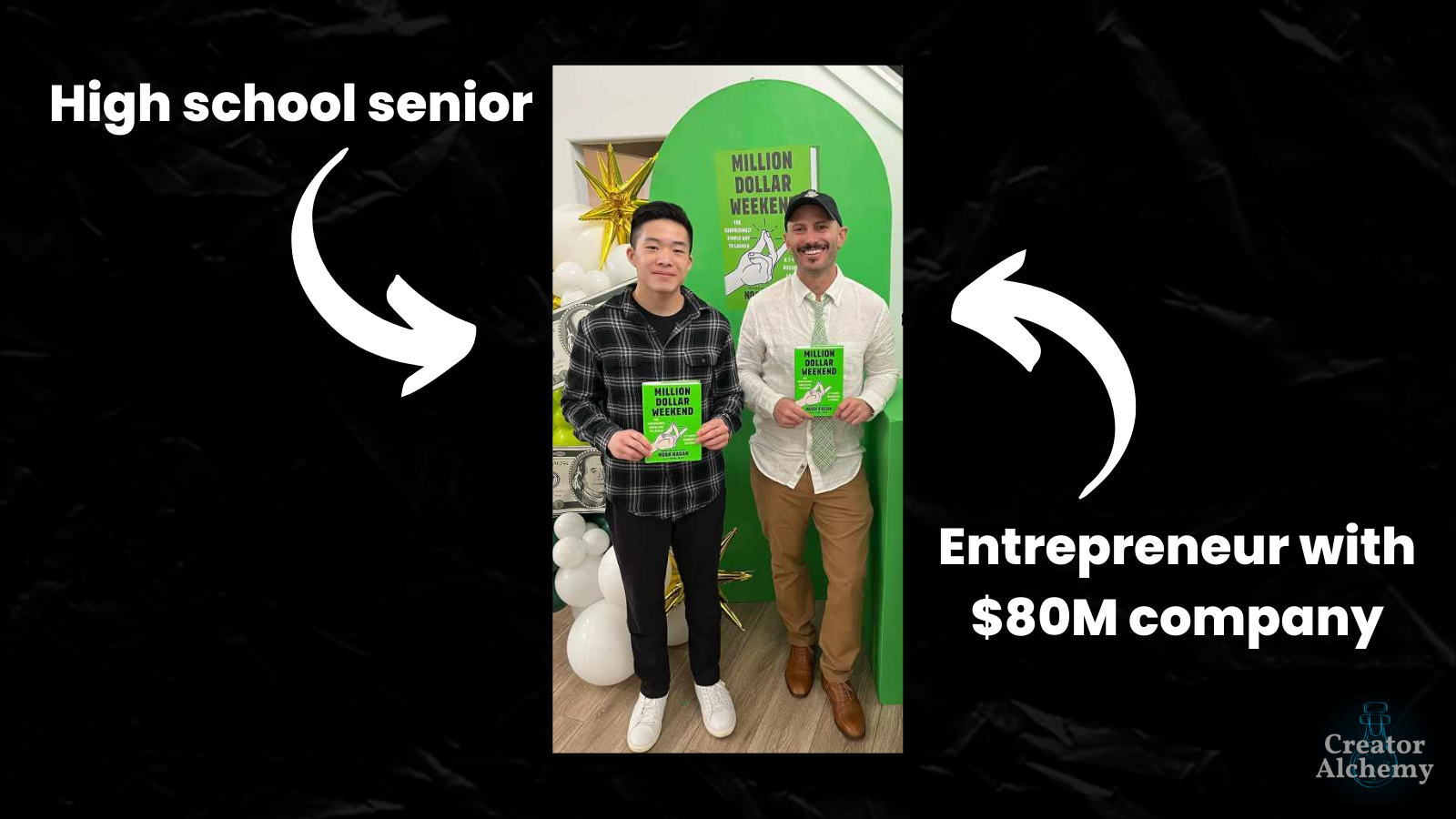
He doesn’t let fear or insecurity stop him from putting himself and his ideas out into the world.
Jay’s built large audiences for multiple social media accounts and newsletters. He even interned at Beehiive, a popular newsletter provider. So when he saw an opportunity to help Noah grow his own newsletter audience, he reached out and laid out exactly what Noah could do to grow his subscriber base and how Jay was the person to facilitate it.
While most people would have simply pitched someone like Noah with a half-assed, “Hey, I’d like to work for you. Give me money?”
Jay said, “Here’s my portfolio of what I’ve already done. Here’s exactly how I can help you do the same. Let’s talk.”
He also doesn’t rest on his laurels.
In this clip, Warren Buffet talks about how he studies failure and that the biggest cause of failure is complacency.
“You want a restlessness…[you] always want to be on the move…[and have the] belief that tomorrow’s more exciting than today,” Buffet says.
Jay’s constantly on the move and excited for tomorrow.
But he doesn’t just blindly execute. He’s constantly exploring new ideas, new projects, and new avenues of entrepreneurship. Even in the year I’ve known him, he’s started multiple newsletters, covered multiple niche topics, and built multiple micro-startups.
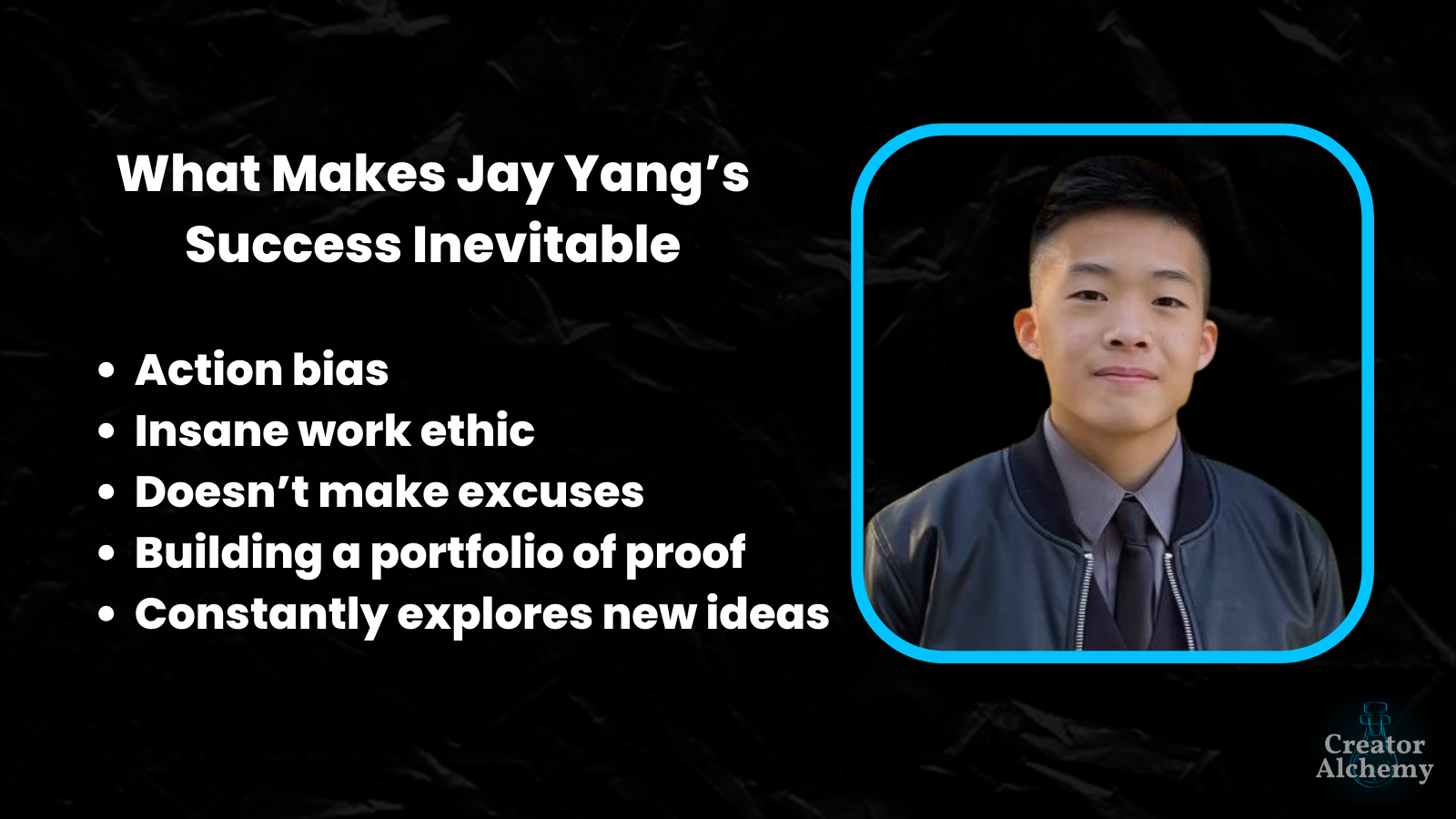
Jay’s skill of constantly executing while also exploring new ideas makes his success inevitable.
Follow along with Jay’s journey by subscribing to his newsletter.
•••
Audacity (tempered with humility)
ding
I’d just gotten an email from a newsletter I’d recently subscribed to—I subscribe to a lot of newsletters, but also quickly unsubscribe because, honestly, most newsletters are mediocre.
So when I subscribed to this newsletter called Growth in Reverse by Chenell Basilio, I had low expectations.
A newsletter about newsletters? How meta.
But when I opened it, this was the first thing I saw:
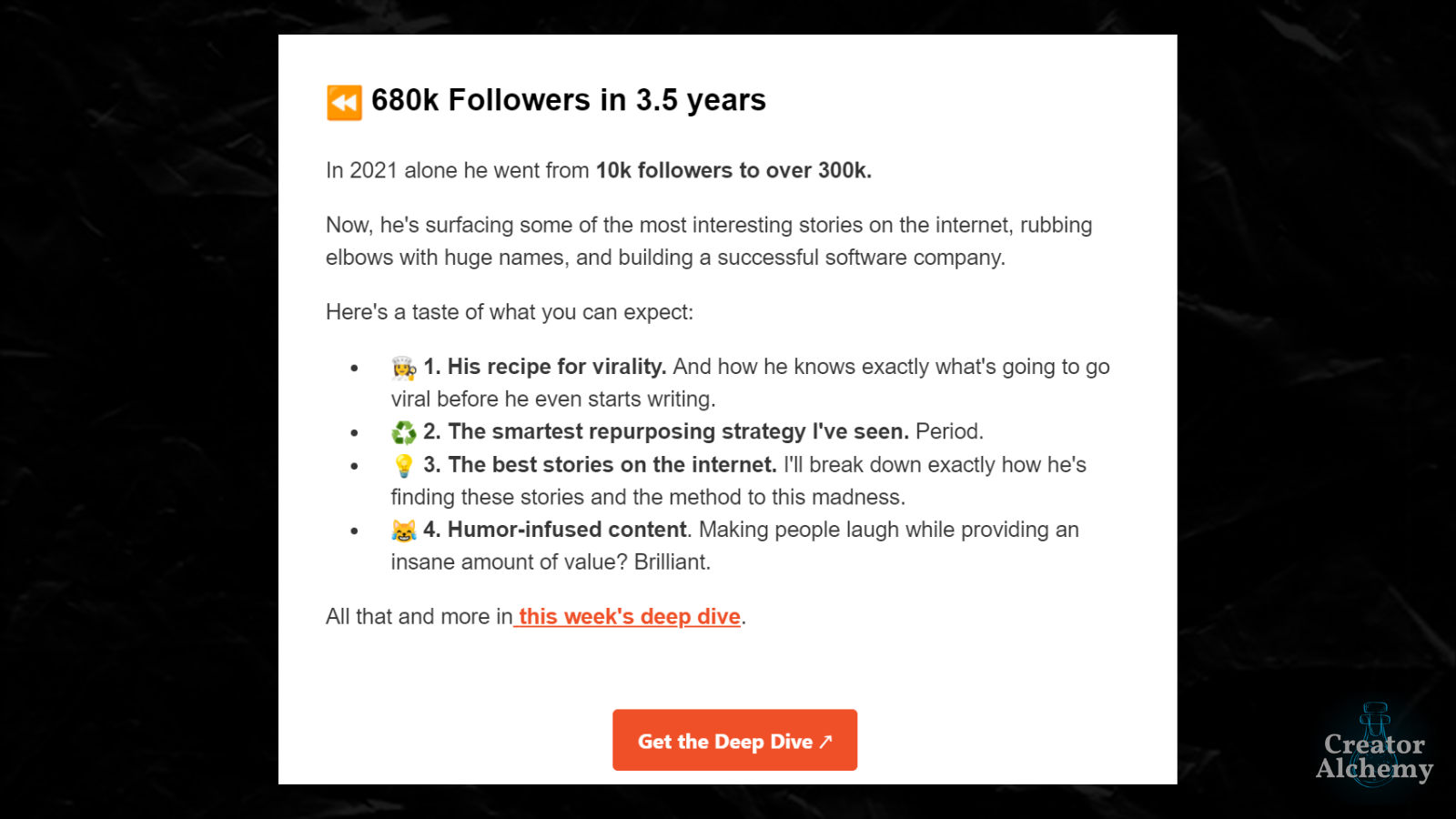
How can you resist clicking to read the rest?
Chenell’s ability to hook you is unrivaled—you can’t help but open every email from her.
So she must be a celebrity in the newsletter space, right? Nope.
Ok, but surely she worked on a ton of newsletters previously? Nope.
Well, she at least has a relevant degree or has some secret inside newsletter knowledge, right? Also nope.
Chenell has a degree in Geography and did marketing campaigns for AAA—nothing to do with newsletters…
So what qualifies her to write about newsletter growth?
And more importantly, what makes her success inevitable?
Simple: Chenell has cultivated the psychological skill of audacity.
Chenell has the audacity to share what she learns as she learns it.
She takes a permissionless approach to creating content—meaning she doesn’t wait for someone to give her permission to do a deep dive or share her knowledge. She just does it.
She has the audacity to be a relentless researcher—easily spending 20+ hours a week on each deep dive.
But she avoids the mistake most people make—she doesn’t claim to be a newsletter growth expert. When you try to position yourself as an expert, it’s easy for fear of failure or other limiting beliefs to stop you from putting yourself and your ideas out into the world.
Chenell has the audacity to write about newsletter growth without being an expert, but also has the humility to not try to claim to be an expert. Instead, she highlights the expertise of others and what they did to succeed. But counterintuitively, this eventually leads people to see her as an expert because she’s collected so many case studies of what works.
She’s also been blogging for a decade. Most of her projects went nowhere. But she had the audacity to keep showing up, keep sharing, and keep experimenting until her latest project hit solid traction.
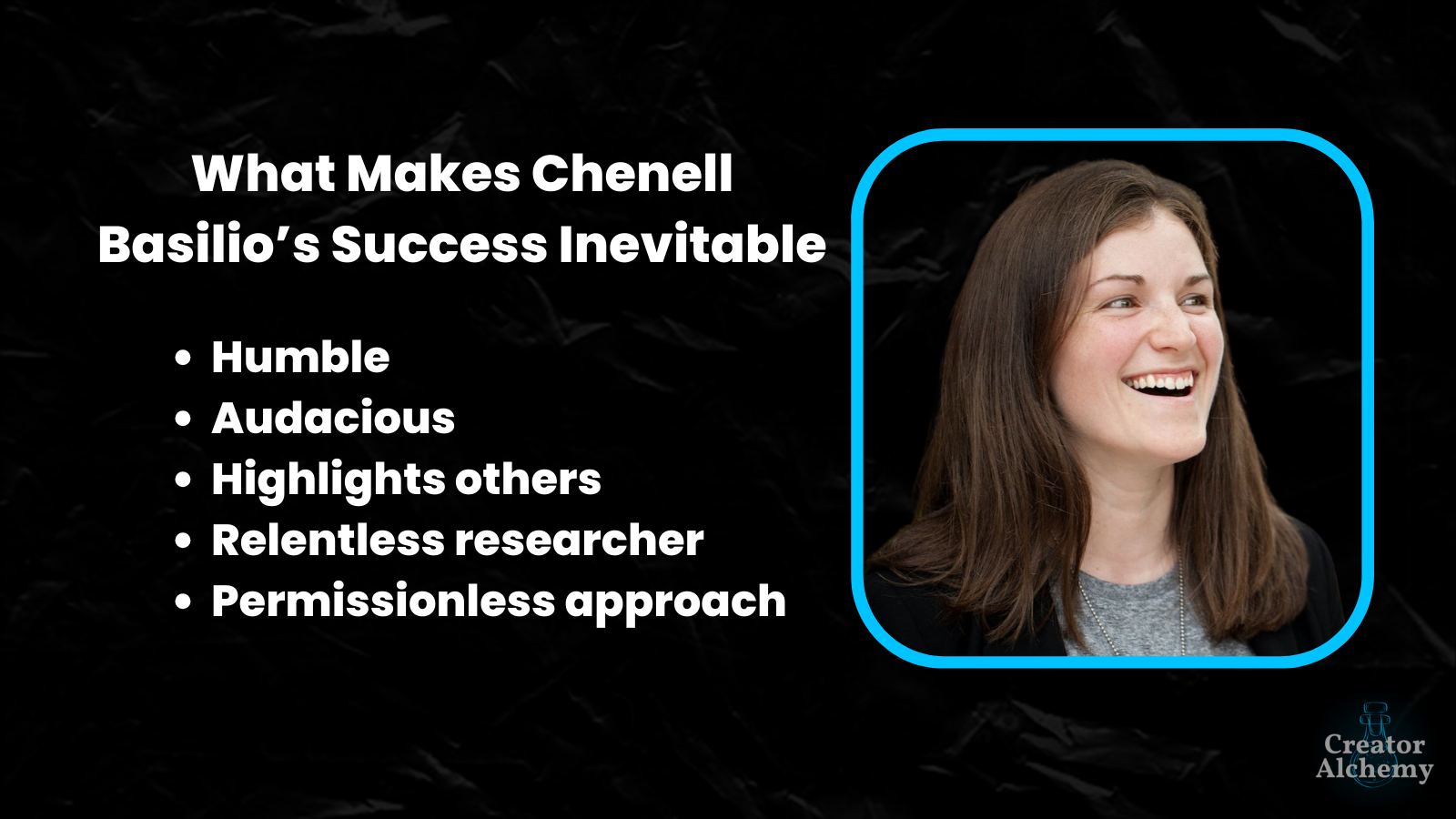
Chenell’s skill of being audacious while also staying humble makes her success inevitable.
Follow along with Chenell’s journey by subscribing to her newsletter.
•••
Curiosity (tempered with focus)
“The biggest mistake most writers make is sprinting past the problem and going straight to sharing the solution. If your audience doesn’t care about the problem, they won’t care about your solution. If you really want your audience to care about your solution, spend most of your time framing the problem.”
This advice completely changed how I approach writing.
I was in a writing course led by one of my favorite modern writers—Lawrence Yeo—when he dropped that bomb.
Lawrence is one of the best storytellers today. So when I found out he had a writing course, Thinking in Stories, where he walks you through how he approaches writing, I couldn’t enroll fast enough.
But what makes Lawrence’s writing so engaging, and his success inevitable?
Simple: Lawrence has cultivated the psychological skill of staying curious.
He built his entire website, More to That, around curiosity.
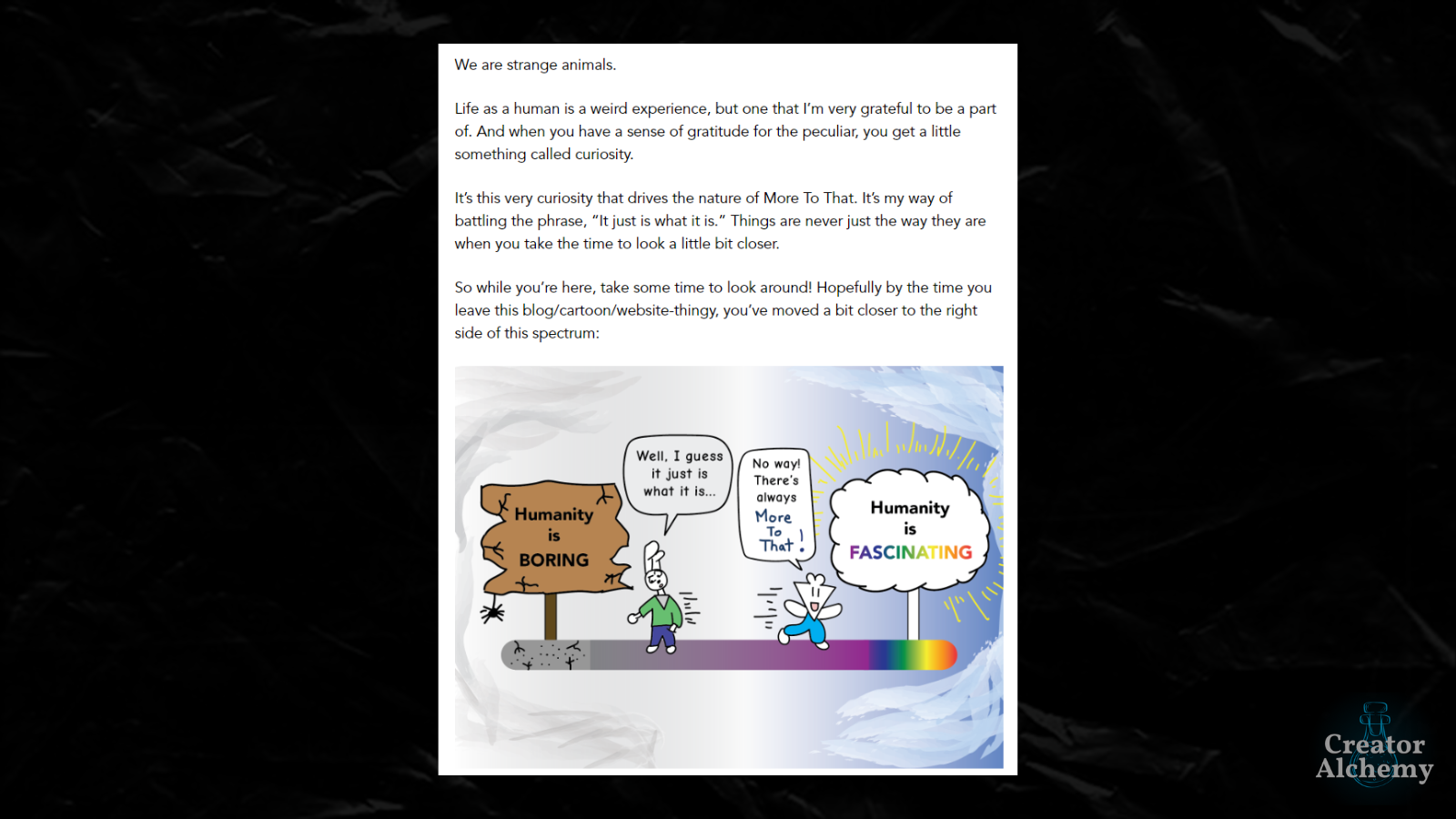
His curiosity allows him to explore new ideas, distill complex topics through storytelling, and connect with readers on a deeply human level through thoughtful worldbuilding.
When you read Lawrence’s writing, you’re reading philosophy. But it doesn’t feel like you’re reading philosophy.
It feels like you’re reading insights into your own life, your own struggles, your own wanderings about the world. You see yourself in his writing, which is why so many people connect with it. If you want to resonate with others, explore your own curiosity. Because chances are, other people share your curiosity.
But Lawrence doesn’t let his curiosity turn into Shiny Object Syndrome. While most people get caught up trying to feed the algorithm and be on every social platform or constantly try to copy what other creators are doing, Lawrence focuses on exploring new ideas, improving his craft, and sharing what he finds along the way in an engaging way.
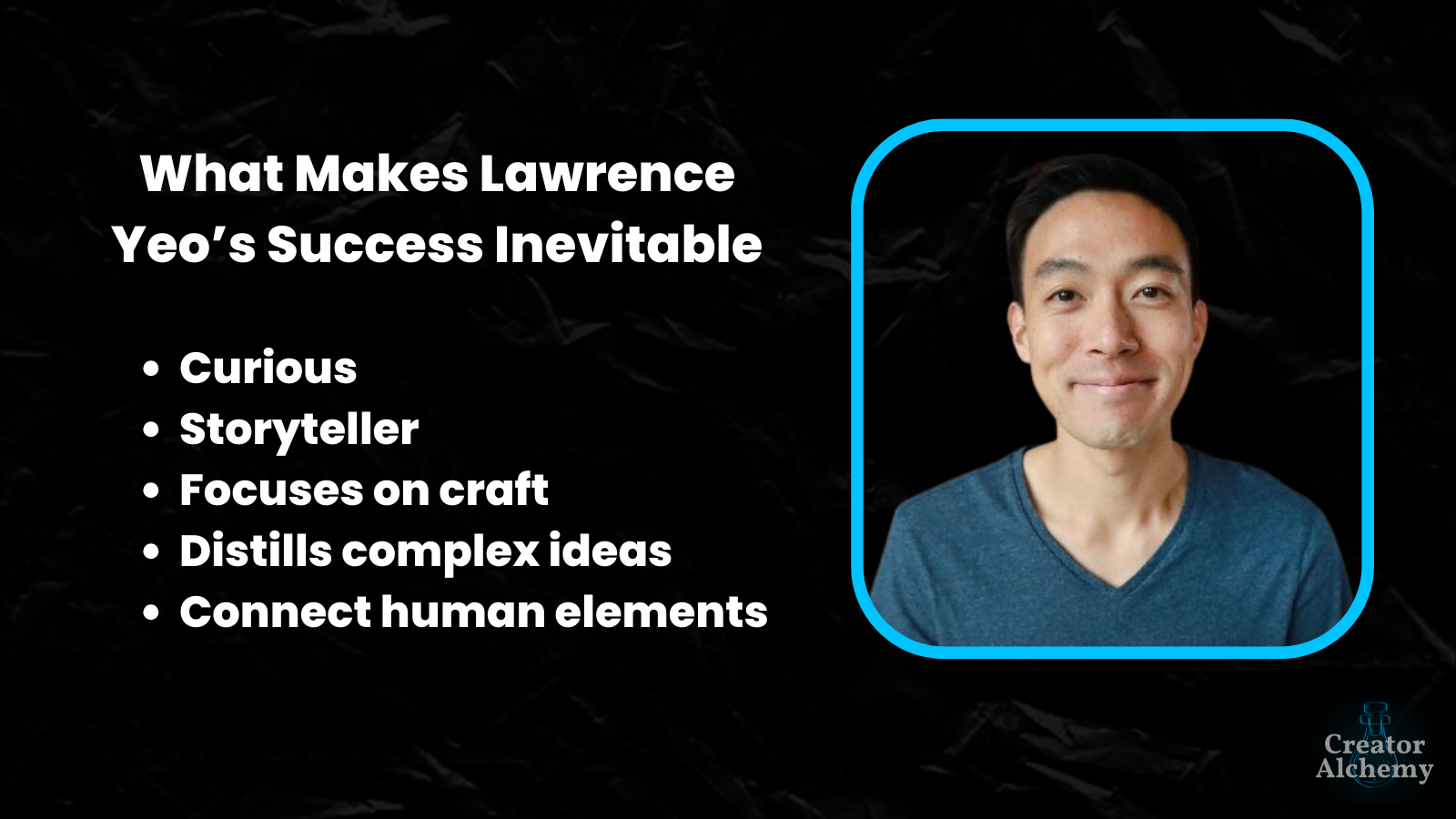
Lawrence’s skill of staying curious about what matters while avoiding getting distracted by what doesn’t makes his success inevitable.
Follow along with Lawrence’s journey by subscribing to his newsletter.
•••
Clarity (tempered with questioning)
How many people do you know who’d turn down a $200K book deal from a Big 5 publishing house?
How many people do you know who’d leave a job as a strategy consultant for McKinsey?
How many people do you know who’d get an MBA from MIT, then leave the corporate world to be a digital nomad?
Paul Millerd did all three.
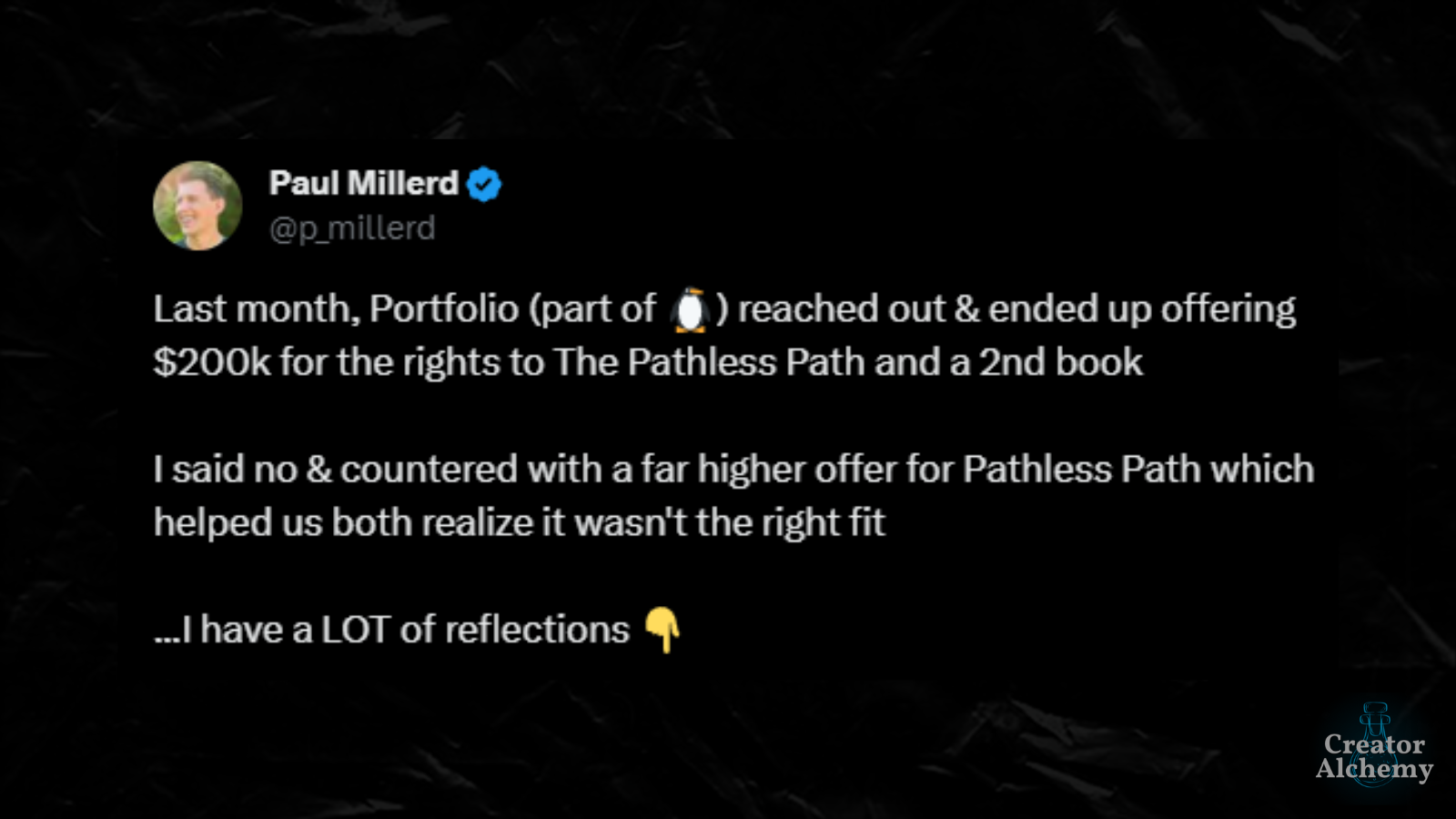
If you ever have the opportunity to take a long walk with Paul, do it. You’ll come out of that conversation with a different perspective on life.
So if Paul’s “given up” so much, what makes his success inevitable?
Simple: Paul has cultivated the psychological skill of clarity.
See, Paul knows what he wants and, more importantly, what he doesn’t want.
He has his own definition of success and pursues it, instead of chasing prestige and what everyone else says he “should” want to achieve.
He turned down a book deal because he wanted to retain complete control over his self-published book, The Pathless Path. He knew if he sold the rights, he wouldn’t be able to give away hundreds of physical copies, give the digital download away for free, or all the other guerilla marketing tactics he has fun experimenting with to get the book in people’s hands.
Paul doesn’t get caught up playing status games or whatever mimetic bullshit is going on—he has clarity on what matters and what doesn’t, and he builds his life and business around them—even if it means leaving money on the table to have more freedom.
But he’s not rigid about how he goes through life. He leaves plenty of room for questioning what he does, why he does it, and what other options could be available if he opened himself up to the possibility.
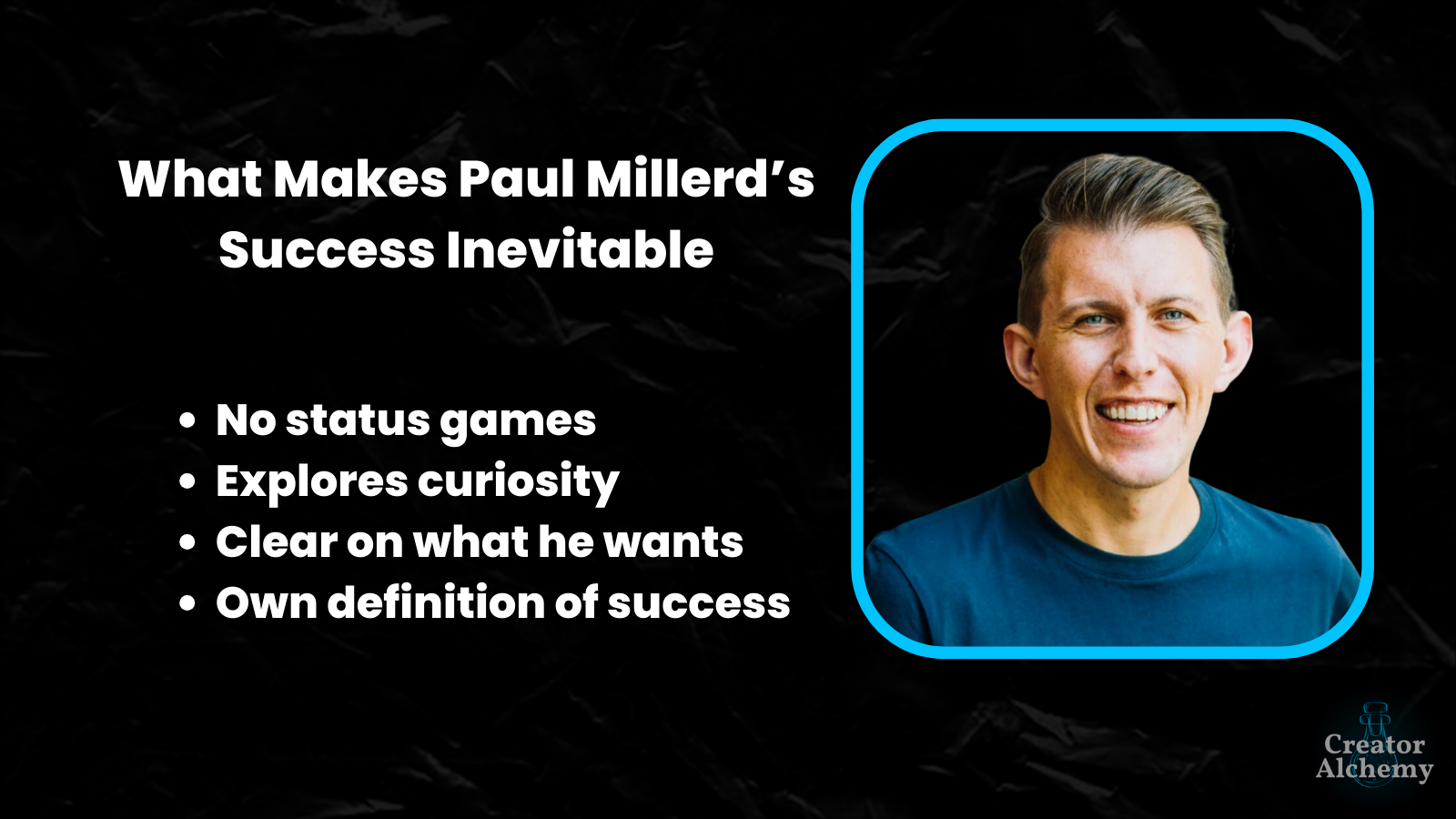
Paul’s skill of clarifying what truly matters, while leaving room to explore new possibilities makes his success inevitable.
Follow along with Paul’s journey by subscribing to his newsletter.
•••
Generosity (tempered with monetization)
When was the last time you had a relationship with a fellow creator or entrepreneur that didn’t feel transactional?
Where neither of you kept a mental tally of who helped who last or you tried to calculate the downstream LTV of your relationship?
Transactions are part of entrepreneurship, sure. But being transactional doesn’t have to be.
I can’t begin to lay out how much value Justin Moore has added to my life and my business.
He’s proof that being transactional isn’t necessary in entrepreneurship.
But what makes Justin’s success inevitable?
Simple: Justin has cultivated the psychological skill of generosity.
There’s a difference between faux generosity and genuine generosity.
Faux generosity is when you give something, but expect reciprocation (and some people go so far as to explicitly state a quid pro quo).
Genuine generosity is when you give just to give without asking anything in return.
Of all the creators and entrepreneurs I’ve met, Justin Moore is one of the most genuinely generous people I’ve ever met.
In April, 2022, I DMed Justin for help with brainstorming how to market one of my courses. Instead of ignoring me, sending a short generic response, or saying, “Book a consulting call if you want my expertise,” Justin sent a series of thoughtful in-depth videos on how he’d approach it. Completely free. No upsell. No ask.
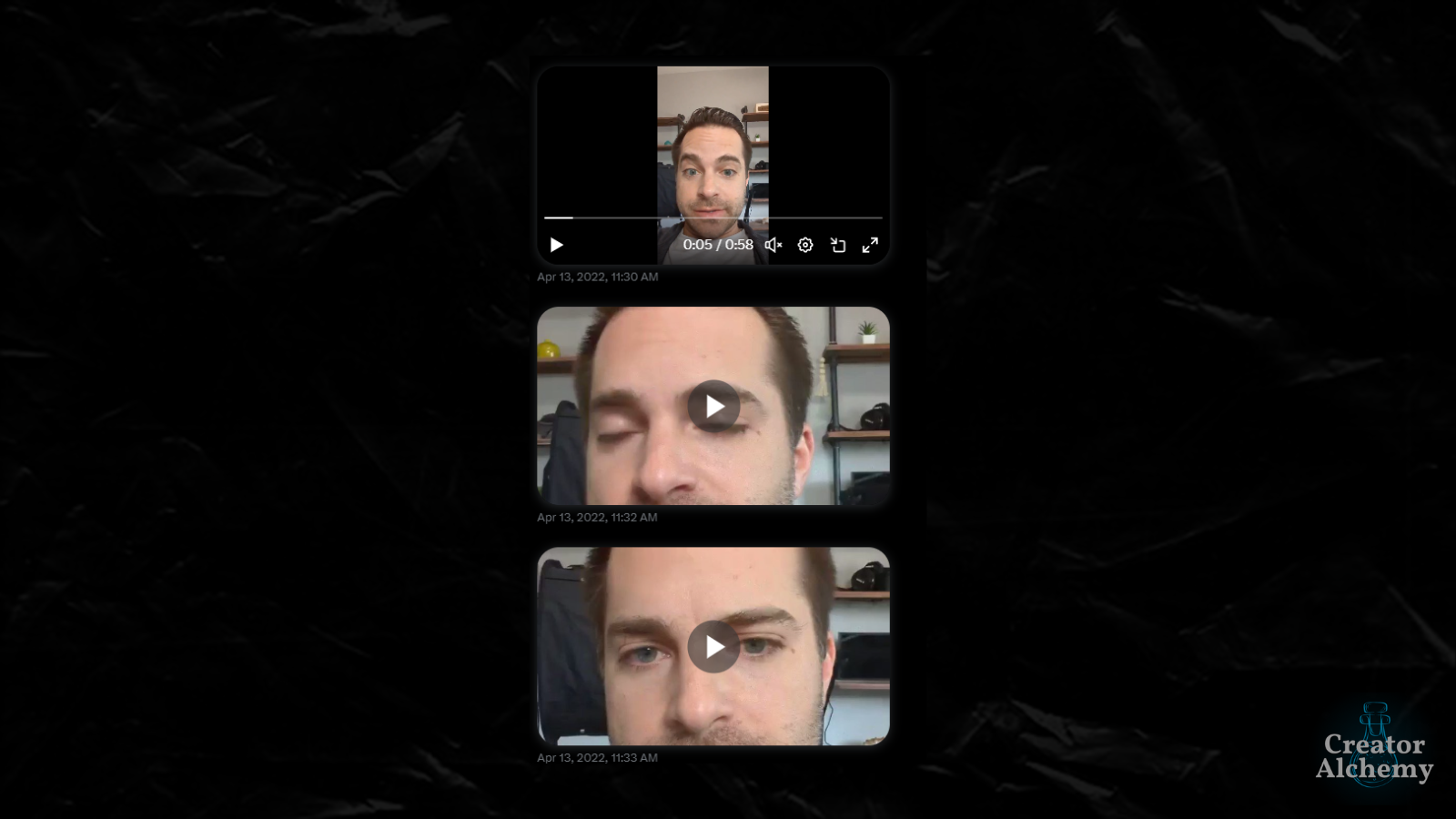
Over time, we developed a friendship (because Justin is an amazing person—how could you not want to be friends with him?).
One day, without warning or any pressure to reciprocate, Justin introduced me to the team of a podcast he’d just been on. I have no idea why he made the introduction or recommended they reach out to me other than he’s just a genuinely generous person.
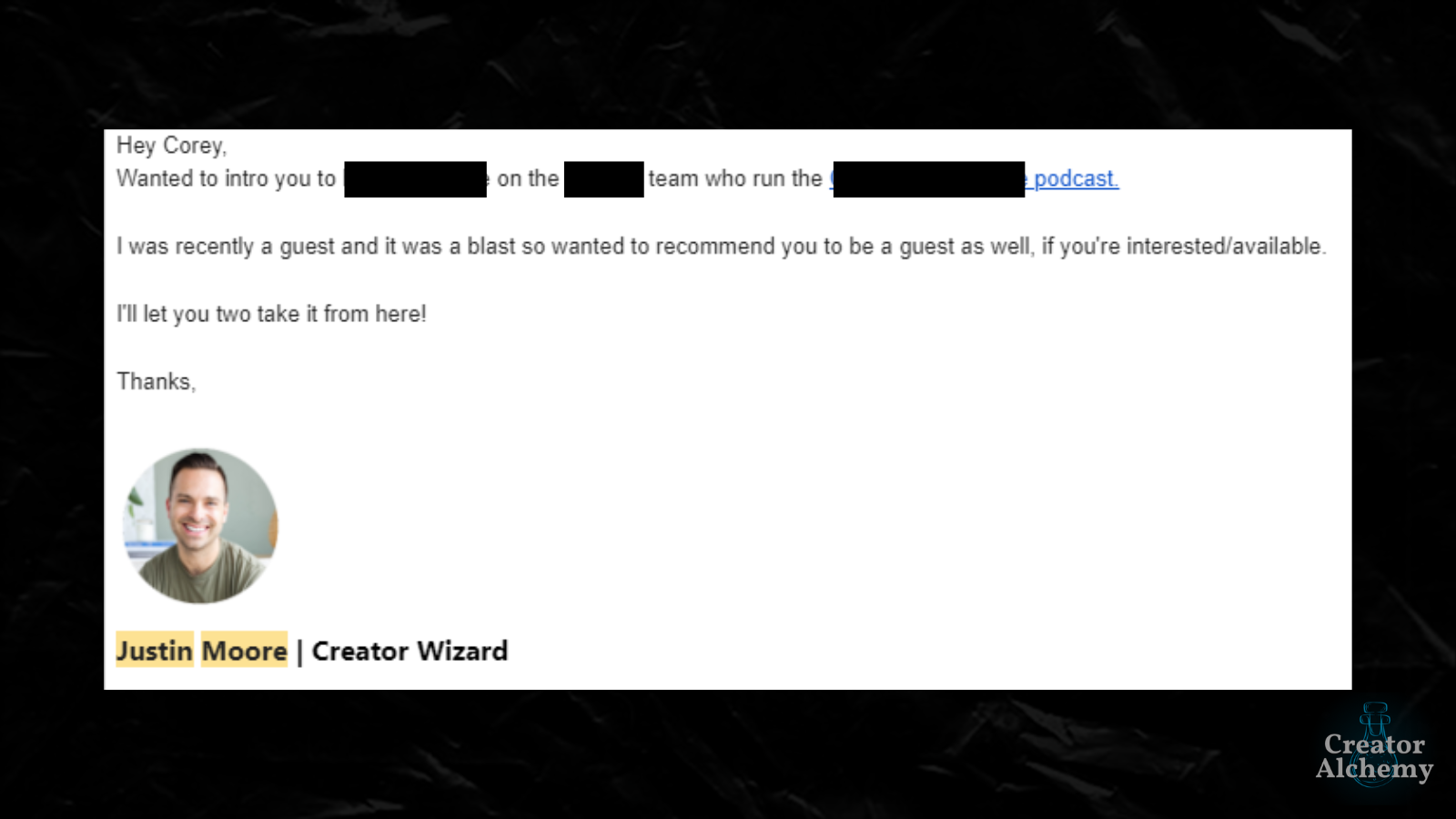
But Justin isn’t generous because he’s afraid of making money. In fact, one of the things he does that allows him to be even more generous is to charge money for the value he shares.
Wait, what? How can you be generous and charge money?
Justin charges for his Brand Deal Wizard course (aff) where he teaches you how to land your dream sponsorships. Plus he does his own brand deals to support his business. This frees him up to share most of his stuff for free.
Justin’s proof you can love making money and love helping people.
I can’t help but want to reciprocate by recommending him, cheering him on, and offering to help any way I can. Because I want generosity to win. I want Justin to win. And so do many other people.
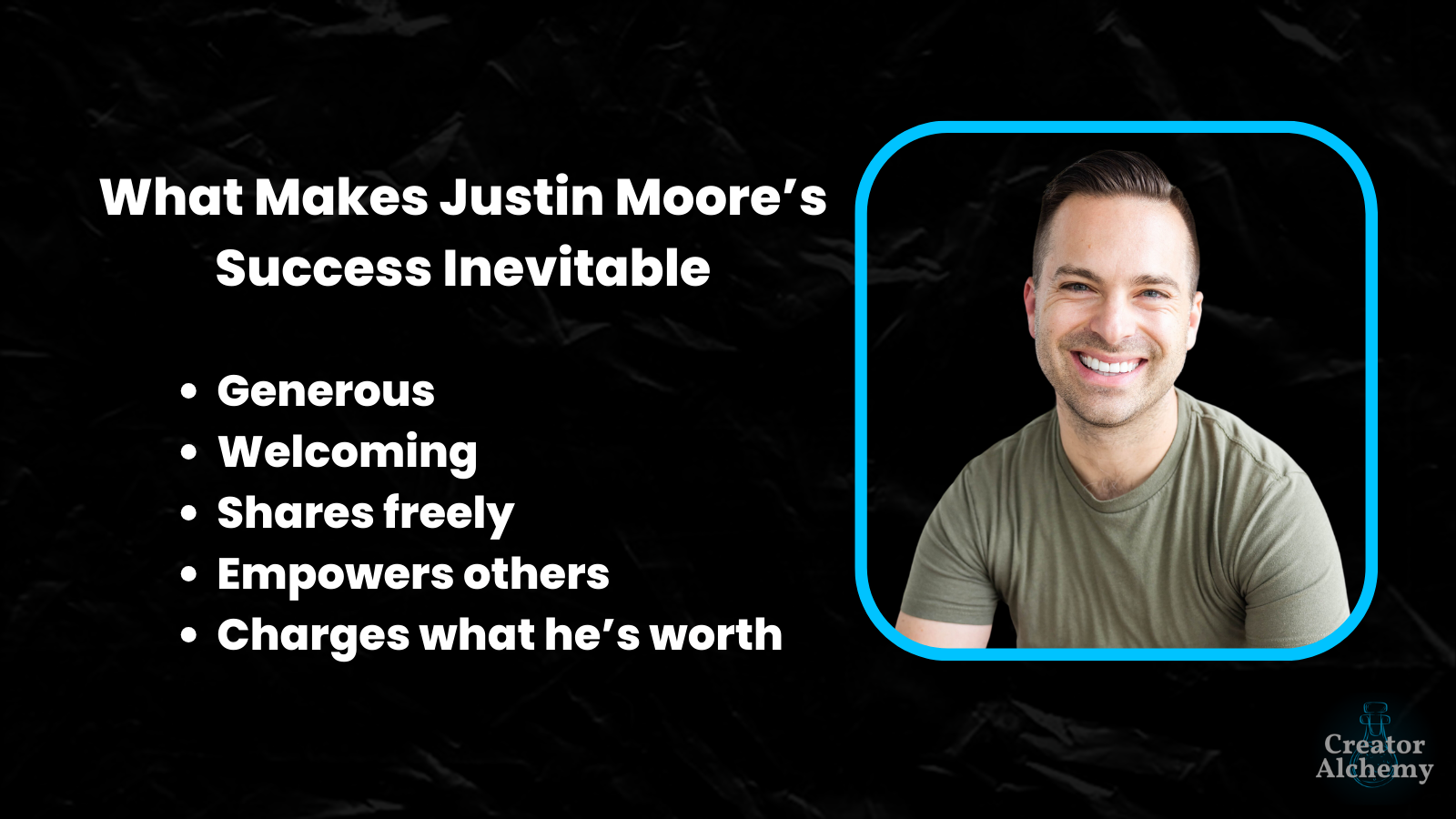
Justin’s skill of genuine generosity, while also being comfortable charging money for the value he creates makes his success inevitable.
Follow along with Justin’s journey by subscribing to his newsletter.
•••
Rigorousness (tempered with playfulness)
The personal development and psychology spaces are full of pseudo-science and empty calorie motivational content.
But Anne-Laure Le Cunff has decided these are the topics she’s building her business, Ness Labs, around.
So what makes her success inevitable?
Simple: Anne-Laure has cultivated the psychological skill of being rigorous.
Not only does she publish evidence-based strategies from neuroscience research through Ness Labs, she also decided to get her Ph.D. in Psychology and Neuroscience from King’s College London.
Here’s her getting a research award that highlights how rigorous she is when it comes to studying and sharing evidence-based strategies.
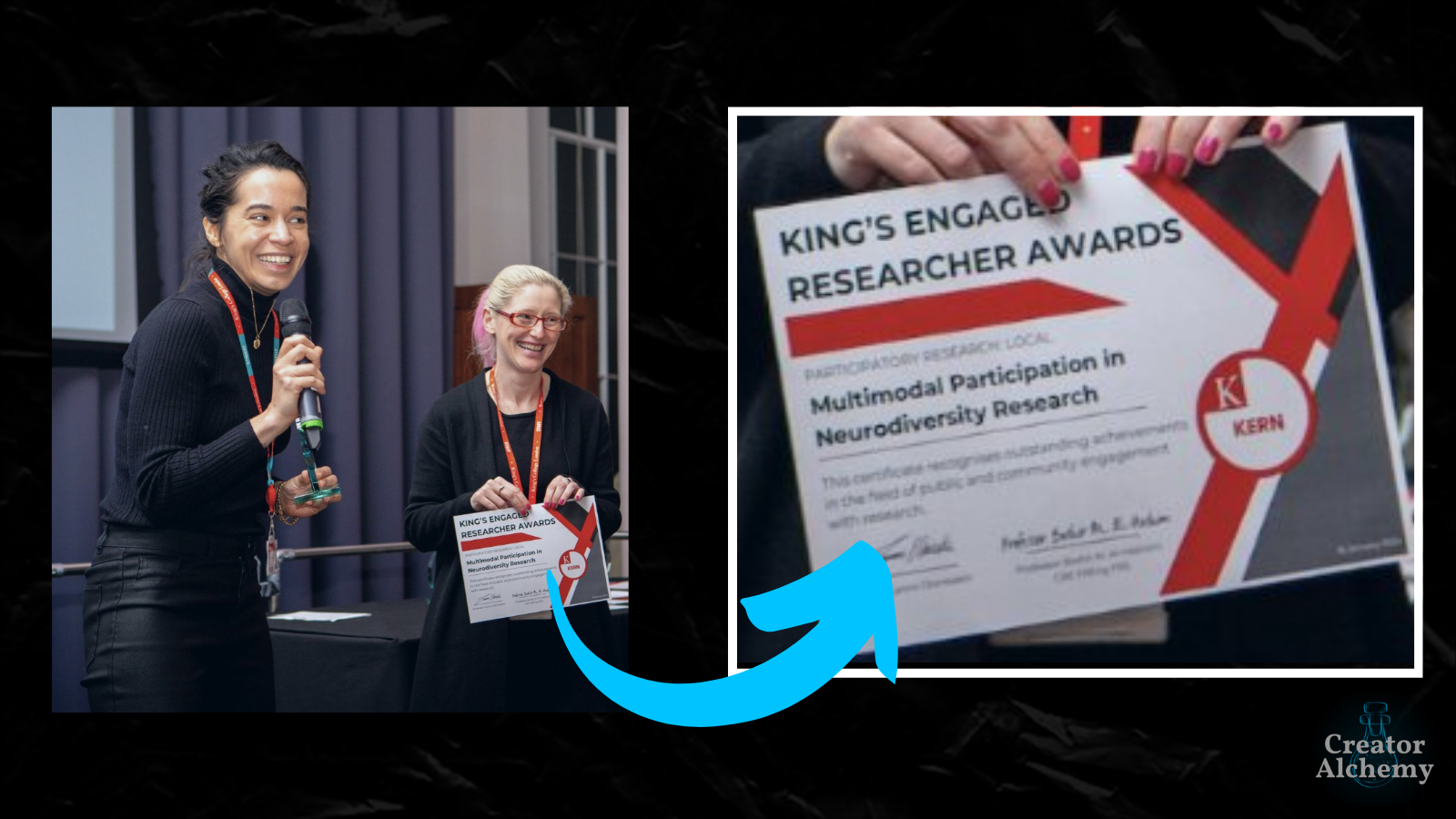
Anne-Laure is the real deal when it comes to actual science and psychological strategies to help people become more creative and productive in their lives.
Her level of rigor not only separates her content from the sea of mediocre pseudoscientific motivational bullshit out there, it also instills an insane amount of trust in her audience.
When you read Anne-Laure’s work, you know it’s backed by real evidence and data—not just the idle wanderings of a random internet influencer.
But she isn’t some rigid dogmatic academic either. She balances her rigorousness with a healthy dose of playfulness. She leaves plenty of room to try out new ideas from different disciplines.
Her article on Liminal Creativity is still one of my all-time favorite pieces.
Even though I’ve been a psychologist for years (and studied it for over 16 years), I’m constantly learning new things from Anne-Laure.
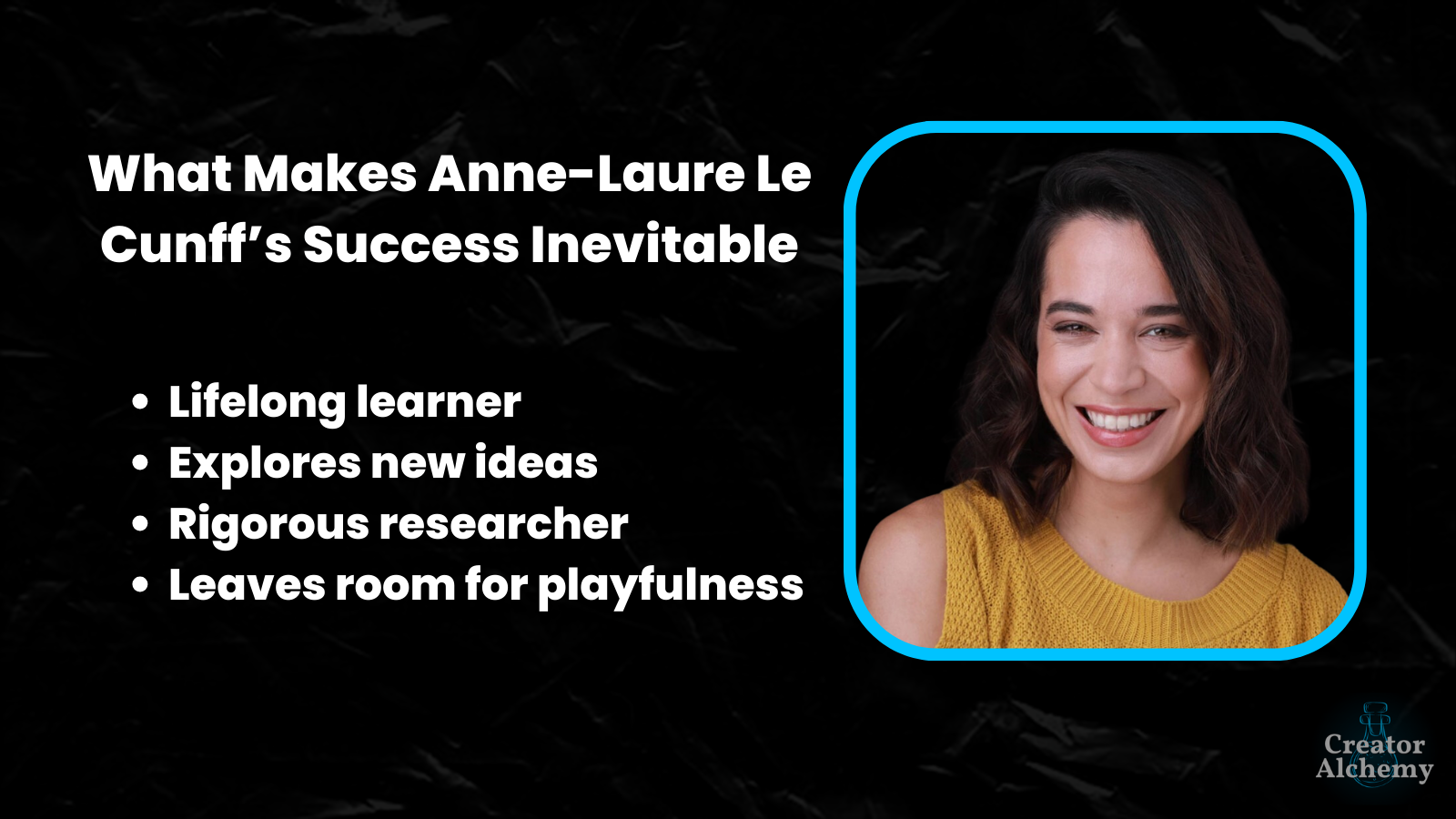
Anne-Laure’s skill of striving to be rigorous while leaving room to be playful makes her success inevitable.
Follow along with Anne-Laure’s journey by subscribing to her newsletter.
•••
Alignment (tempered with hardship)
“This was great, man. But I’ve got to head out. I’m training for a marathon and have to run seven miles today.”
I’m sitting at a coffee table with a podcaster named Danny Miranda.
Danny and I met for coffee around 10 a.m. He’d been up since around 6 a.m., meditated for an hour, journaled, researched and prepared for some upcoming podcast interviews, then he and I hung out for a couple hours, then he was going to prep for his first marathon. Then he was going to go about the rest of his actual work day…
Yeah he’s a machine, but beyond his obvious discipline, what makes Danny Miranda’s success inevitable?
Simple: Danny has cultivated the psychological skill of alignment.
When I asked Danny what his next “thing” was or what he was working on, his answer was “the podcast.” He’s singularly focused on making the best podcast, being the best interviewer, and being the best researcher out there.
He fully aligns his actions and intentions, and he does the work that feels effortless to him—aka, he does what he can’t not do.
Danny fundamentally loves having deep conversations and connecting with people, so he’s built his life and business to fully align with doing these things.
But Danny doesn’t only do things that feel effortless. He also practices self-imposed hardship. He does hard shit all the time.
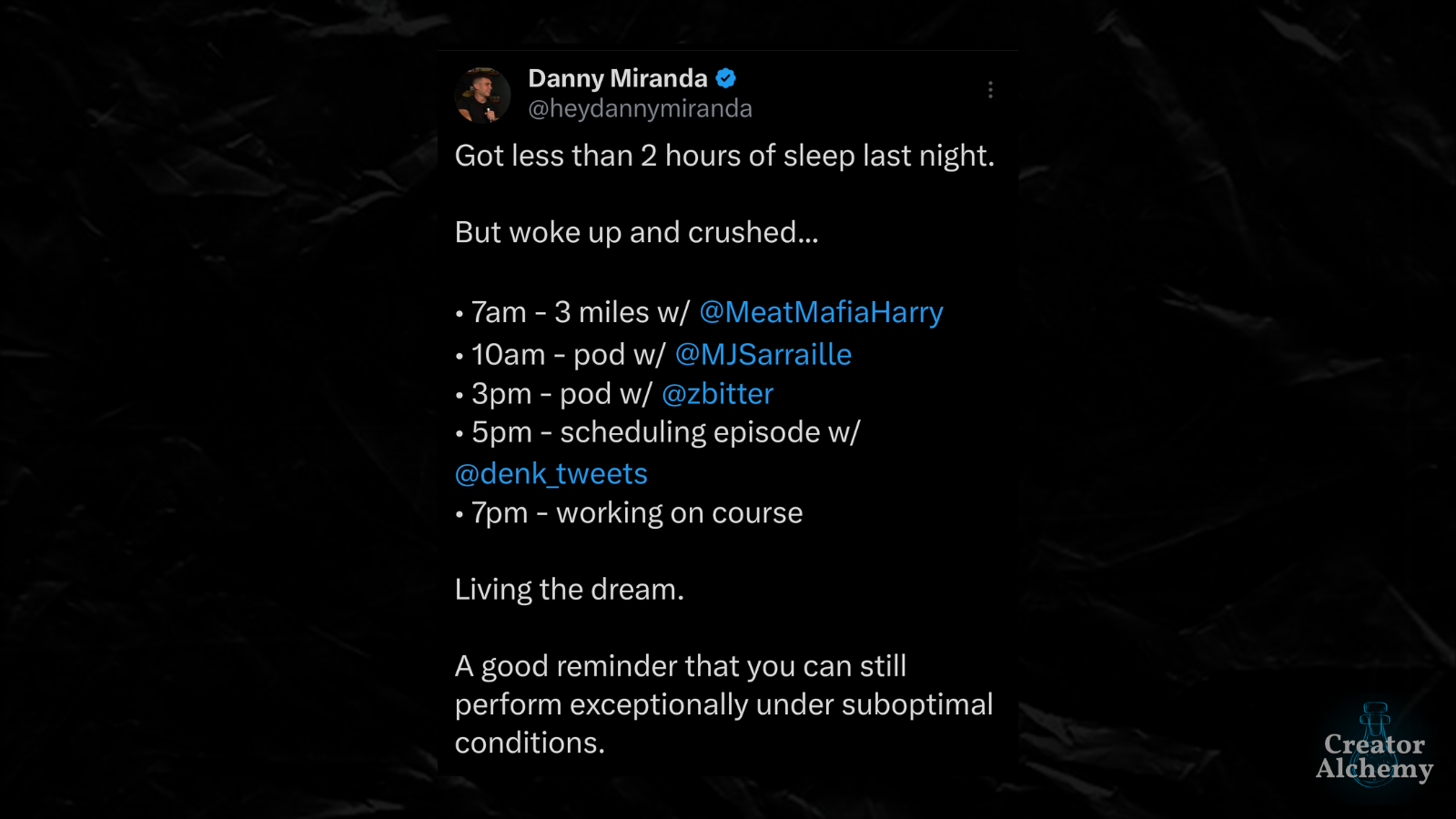
Meditating daily for years, waking up early to run, doing marathons, pushing through fatigue to do back-to-back-to-back intense podcasts—no one would describe Danny’s days as “easy.”
But “easy” and “effortless” aren’t the same. Danny lives his purpose and keeps his days aligned with doing meaningful, purpose-driven work that fulfills him.
Danny’s also better at building rapport and creating a sense of psychological safety than 99% of psychologists I know who’ve had a decade+ of training. He’s living aligned, and it shows.
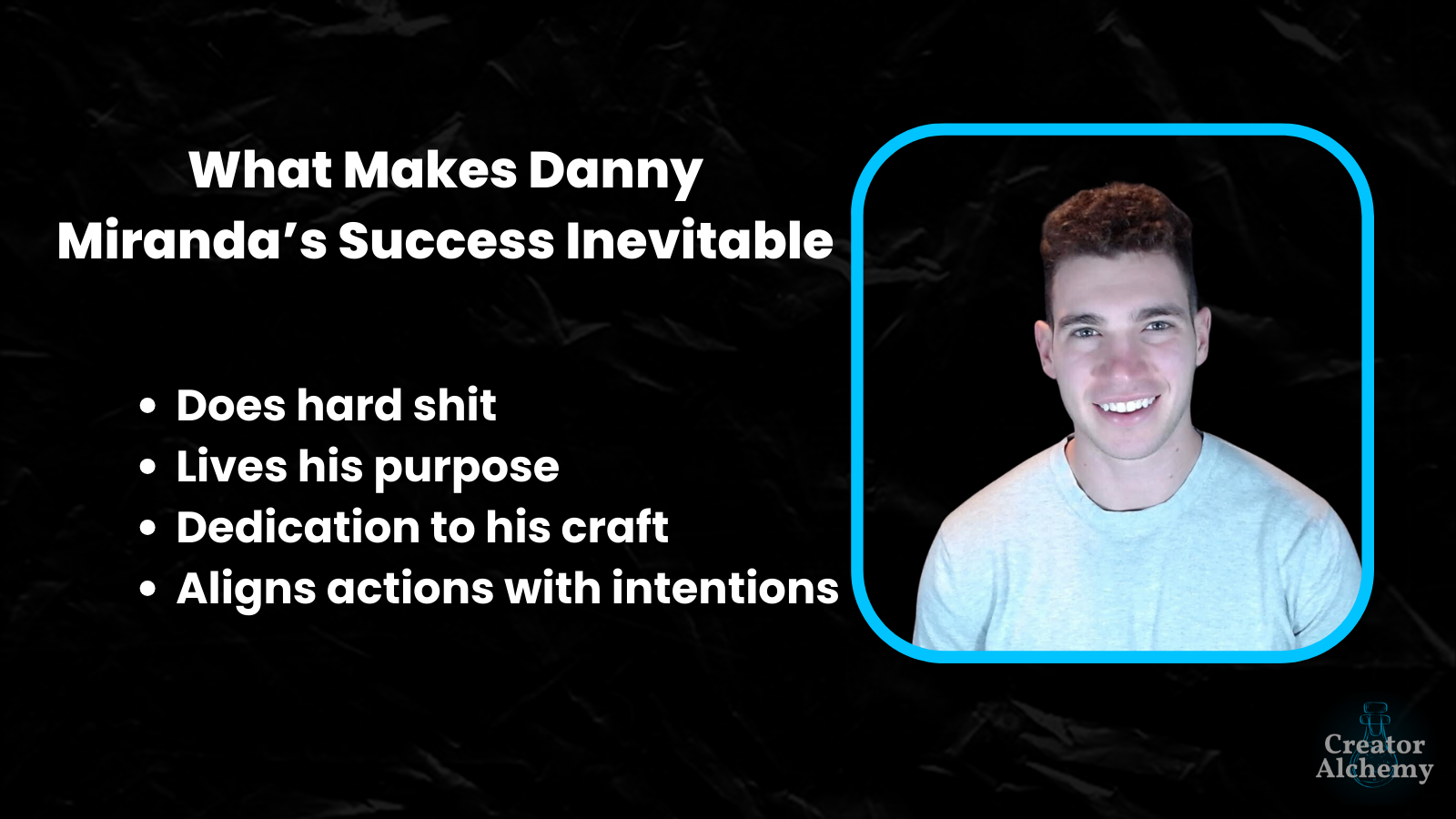
Danny’s skill of keeping his actions aligned with his intentions, while also practicing self-imposed hardship, makes his success inevitable.
Follow along with Danny’s journey by subscribing to his YouTube channel.
•••
Final Thoughts
Notice how none of these psychological skills have anything to do with how much money you have, how powerful your network is, or requires a genius-level intelligence.
Anyone can cultivate the:
- Execution and idea exploration of Jay Yang
- Audacity and humility of Chenell Basilio
- Curiosity and focus of Lawrence Yeo
- Clarity and questioning of Paul Millerd
- Generosity and monetizing of Justin Moore
- Rigorousness and playfulness of Anne-Laure Le Cunff
- Alignment and self-imposed hardship of Danny Miranda
As long as you’re willing to put in the work.
You can make success inevitable by practicing any of these psychological skills. But if you stack them, you significantly increase your odds. Every person I highlighted today practices each of these skills, but they especially embody (at least to me) one more than the others.
Whatever you consistently practice, you improve.
By practicing these psychological skills, you’re improving skills that inexorably draw you closer to success.
That’s how you make success inevitable.
That’s how you become inevitable.
•••
P.S.
Before you put in all the work to make success inevitable, read The Hidden Cost of Success and Why You Might Not Be Willing to Pay It. It’s an eye-opening piece that explains why so many “successful” people end up miserable, and how you can avoid joining them.

